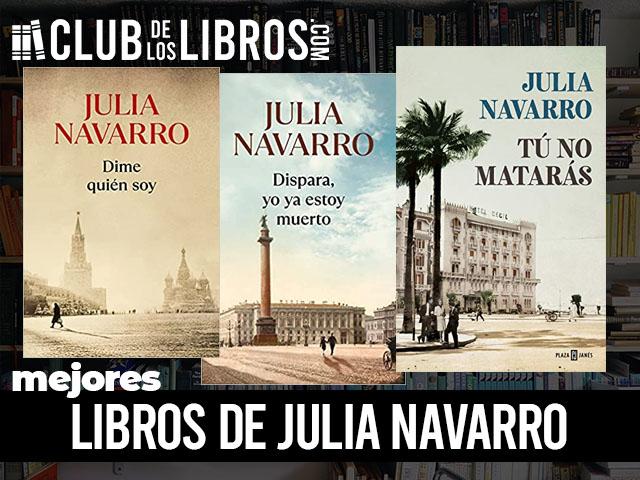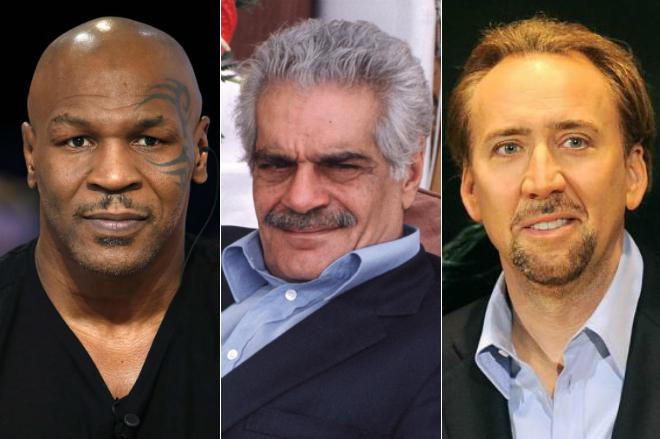Julia Navarro: "There is no more complete adventure than reading"
I wanted to be a dancer, then a physicist, but the word won the professional pulse. She first as a journalist and, for eight novels now, as a writer. His latest title, 'Nowhere', arises from topics such as terrorism or the disagreement between East and West, which are on the pages of newspapers. "I write to understand the human condition," says Navarro, who uses the story of Abir Nasr and Jacob Baudin to investigate why. A third axis of the novel goes through television journalism. «Good journalism is the one that tells the facts and provides tools to understand reality. The trivialization of information hurts my sensitivity. Nor do I understand the dynamic of entertaining all the time as if the citizen were childish. The journalist's job is something very serious because he is the intermediary between what happens and society, he is not there to entertain. This devaluation of information worries me," says Navarro, author of 'Tell me who I am'. And good literature, what is it? «What is the filter with which it is measured? We all have to identify the quality of a book when we have it in our hands. In Spain there is prejudice about books that are lucky enough to sell. There is a certain elitism and contempt for the commercial: if many people like it, it cannot be good. To me, this seems like a superb attitude and contrary to literature, which must have a broad perspective, "said Navarro, who inaugurated the first meeting with authors of the Literary Autumn.
Every time Julia Navarro publishes a new title, she has the feeling of starting from scratch, of gambling. "I don't mind writing 1,200-page novels," she says. With 'Nowhere', it stays at 416 pages. "I'm not going to self-censor. I know that publishers like 300-page books because their business is selling books, but I tell stories and I don't look at the publishers' bottom line. I am not going to self-censor," says Navarro, who is also a columnist for 'MujerHoy'.
Julia Navarro's novels allow you to travel. In 'Nowhere' it is no exception, since the plot runs through Paris, Brussels, Lebanon and Tel Aviv, among other territories. «My two great passions are reading and traveling. They are the doors to other lives, to knowledge. I am enormously curious and my desire for knowledge is only satisfied with books and travel”, explains the godmother of the Fira del Llibre, a title that “excites and makes her proud”.

Navarro does not deny his days as a journalist. On the contrary. «Journalism has given me many joys. We journalists can live many lives and we meet people who, if it weren't for this profession, would not be within our reach”, he affirms. At this point he recalls his trips to the Middle East and Israel's invasion of Lebanon in 1982.
Literature has given Navarro more capacity for reflection and calm to get closer to reality than journalism, which imposes fast times. Of the novels, she hates the correction of the texts, but only the writer of the same allows her to "open the imagination so that other people, other ways of living, and other ways of thinking inhabit me".
~~***How to Make a Microwaveable Neck Wrap***~~Steps:1. Choose a fabric to make your microwaveable wrap from.... https://t.co/B9ViV58jLy
— Jane McLaughlin Mon Aug 22 05:59:53 +0000 2016
The author of 'La hermandad de la Sábana Santa' affirms that without the readers the writer Julia Navarro would not exist. «I am lucky to live from literature for them. Thanks to the readers I have the independence to live from my books and create the books I want, because they accompany me on all my adventures. When I write I don't think about them, if I did I would be cheating myself and even them. I think of them when I write the word end, that's when readers have to judge my work," he argues.
Navarro, who assures that she does not read herself again ("I will read my novels when I am an old lady," she jokes) earned the public's approval with her first novel. «'The brotherhood of the Shroud' was a gift. Readers made it a bestseller, even outside the country." The author of 'Shoot, I'm already dead' doesn't know why she's so read. «I am not able to give an answer to why my books are sold. I write and I do it with the sincerity of telling the story I want to tell. Either you write what you want to write or if you try to please the readers you are trying to deceive them”, he explains.
Julia Navarro's readers number in the thousands in a country with reading rates with a wide margin for improvement. «Reading is a pending subject. I am concerned that reading is a punishment for children when it is a pleasure. We have to ensure that schoolchildren who, just as they are approaching new technology, do not lose the habit of reading”. Navarro claims the importance of the Humanities to train "critical citizens and think for ourselves." Thus, he points out that Philosophy should be mandatory because it invites us to ask ourselves questions and the history of religions is essential to understand Western culture regardless of whether or not you are a believer. In his opinion, "culture is being mistreated in the study plans in our country." "There would have to be a great educational pact so that education is not changed in each legislature," adds the author, who confesses that she buys three or four books every week. "I'm more into books than bags," he jokes.
“The rulers have a very short gaze, but it is a common evil regarding culture and education”, assures the author of 'You will not kill'. Regarding the cultural bonus, Navarro points out that “a tool should be provided so that young people in their years of study or youth can have access to culture through a cultural card. The 400 euros are fine, but they're over. We must continue to support young people" so that they go to the theater, the cinema, concerts, etc.
«Culture is never on the agenda of politicians, it has never been on that of any president of the Government, nor on that of political parties. Culture has been like the ugly duckling. We do not have a cultural policy project in a country as rich as Spain. Culture is not a thrown weapon, it is a nexus of knowledge and it must be available to everyone. Neither should languages be a thrown weapon because they are part of our culture and heritage”, explains the novelist. "If there was a cultural project for the country, we would all be more proud," he adds.
Lockdown has been a kind of ally of literature. Some people have read again, but will they continue reading? «It is a challenge that a part continues with the habit of reading. As? No idea. It is true that there is a lot of encouragement to do different things and we lack hours a day to be able to reach everything, but today opening the pages of a book is still the greatest of adventures. you start a journey that you don't know where it will take you, you will meet other people, other places... There is no more complete adventure than reading. You continue to learn through reading. I trust that a part will stay, “he says. He defends the good moment of literature in Spanish and confesses the book that he is devouring at the moment: 'Los besos', by Manuel Vilas.




